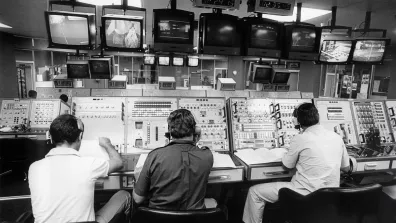CNES's budget for 2024 is €2.370 billion:
- State subsidies: €1.900,6 billion
- External contracts : €405,1 million
- PIA future investment programme: €9 million
- Stimulus plan: €43 million
- France 2030: €12,8 million
Contribution to European Space Agency (ESA) is €1.091,8 billion.
Bigger budget and consolidated priorities
In recent years, regular increases in subsidies and a series of exceptional announcements (France 2030, space stimulus plan) have confirmed that space is a top priority for the French government. In 2022, it announced an investment of more than €9 billion in the space sector over three years. CNES leverages these sources of funding to maximize the multiplier effects for French industry.
Approved end 2021, the France 2030 investment plan includes a space strand with a budget of €1.5 billion to develop certain key market segments like reusable launchers and constellations, and to invest in new applications. CNES is one of the operators for the space strand of France 2030: we issued our first requests for proposals under the plan in 2022.
In May 2021, the government appropriated a budget of €365 million to CNES to cushion the pandemic’s business impacts on the French space sector. By end August 2022, all projects under the space strand of the France Relance stimulus plan were underway, with 95 contracts awarded by CNES in all, more than 75% of them to start-ups and SMEs.
Since 2010, the government has decided to invest in innovation for industry sectors with high potential. The total budget of €609.5 million appropriated to CNES under the PIA programme has so far enabled 18 projects to get underway, notably to develop and demonstrate innovative space technologies. Their results will help to sharpen French industry’s competitive edge in new multi-mission spacecraft buses, nanosatellites and in-orbit servicing.





